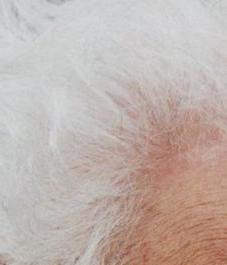
José Ángel García Landa
Brown University, 1989
Online edition 2004

Is "metaphor" a metaphor? Metaphor is translation. Translating the unknown into the known—this is the process of the acquisition of knowledge for Aristotle. But in order to see this meaning inscribed in the word "metaphor" itself, we must retrace its etymology—re-translate the word into ancient Greek. "Metaphor," that is, is not a metaphor in my text, since metaphoric origin does not equal metaphoric usage. Aristotle calls "metaphor" both the metaphor and the vehicle. We formulate this in a more abstract way—metaphor is the relationship between tenor and vehicle, and it occurs only in usage. There is no such thing as a dead metaphor—"Il n'y a pas de métaphores dans le dictionnaire" (Ricoeur). Or rather, there are no metaphors in the entry headings. Except for one (suppositione materiale): the entry "metaphor." Even if a definition is ultimately metaphorical, it is nonetheless a definition--metaphor is not unable to explain itself in a dictionary. And not all metaphors are definitions.
This is sometimes obscured in Derrida's account. I am puzzled by his belief in the irreducibility of a set of basic concepts or "philosophemes." Are these basic paired terms of philosophy—literal / figurative, sensible / intelligible, etc.—radically different from other terms? Do they originate beyond philosophy, beyond our reach? Philosophy, Derrida argues, can't dominate its own metaphors: "It could perceive its metaphorics only around a blind spot or central deafness" ("White Mythology", in Margins of Philosophy 228). This blind spot or absent center is still a center. Derrida's project is to show how a general project which aims at dealing with the metaphorics of the philosophical text is bound to fail, because the basic philosophemes are themselves metaphorical. Soon we come full circle: "Metaphor is less in the philosophical text. . . than the philosophical text is within metaphor" (258). White mythology is deciphered—which is to say that the essay itself is articulated on a series of unmaskings, and ultimately on the opposition between appearance and reality which it denounces.
By making this mythology readable, Derrida has already done most of the work that he claims cannot be done (it is also the work he set out to do). But at the same time he erases the difference between living and dead metaphors—metaphors and non-metaphors, the metaphor given us by our language and the metaphor we create in our limited but essential (and I mean it) elbow-room.
The conceptual network Derrida discovers behind philosophy (230) is not "implied." Except for us who constitute it, that is. The relationships we conceptualize are lived by the subjects we study as a series of nonconceptual practices. That is why there is not a conceptual network beyond philosophy—it is not beyond, but in our philosophy. It is not conceptual before it is formulated in a philosophical text. Philosophemes should be seen not as the basic, irreducible bricks of thought, but as elaborate constructs. A philosopheme ("metaphor", for instance) can be translated--metaphorized . There is no such thing as the absent center or the conceptual network behind a text—this changes according to the different viewpoints we bring to bear on a text. The blind spots of structuralism are not the same for a deconstructivist and for a Marxist. The sole reference to Heidegger in "White Mythology" is telling: Heidegger speaks of the simultaneous ruin of metaphysics and metaphorics, because the opposition sensory / nonsensory is metaphysical, and "the metaphorical exists only within the borders of metaphysics" (qtd. in 226n.). But in Derrida's view, this opposition is "neither the only, nor the first, nor the most determining" at work here (226n.). His own analysis privileges the literal/nonliteral or proper / nonproper opposition. This absent center is more of a center for Derrida's purposes.
A philosophy can be described by another. In the same way,
a rhetorical focus on philosophy will afford a peculiar point of view on
philosophical texts and problems, and it need not "dominate" the
discourse of philosophy in order to do this, not in the sense of holding
a basic truth which escapes philosophy. The variety of discursive practices
within one culture can therefore provide perspectives on each other. And
within the philosophical tradition, a system of thought can think itself,
even if it cannot think itself according to the rules of another system of
thought. This should make us recognize the limitations of philosophers or
philosophies, but not necessarily those of philosophy.
—oOo—
Jacques Derrida, "La mythologie blanche (la métaphore dans le texte philosophique)." Poétique 5 (1971): 1-52.
_____. "White Mythology: Metaphor in the Text of Philosophy." In Derrida, Margins of Philosophy. Trans. Alan Bass. Chicago: U of Chicago P, 1982. 207-72.